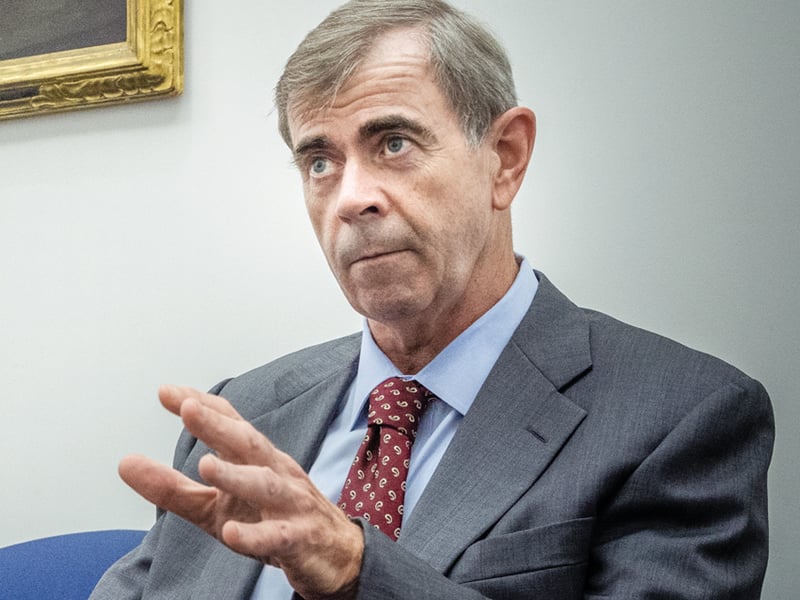

Secretary of the Commonwealth of Massachusetts William F. Galvin on Wednesday charged GPB Capital Holdings with defrauding 180 local investors who bought private placements from broker-dealers that sold the high-commission products.
In the complaint filed this morning, the Massachusetts Securities Division alleges that local investors contributed more than $14 million to five GPB funds, relying on private placement memoranda, known as PPMs, and other marketing materials which stated that investor distributions would be paid from operational profits. Contrary to the information provided to investors, GPB used investor funds to pay distributions, according to the complaint.
Payments between related businesses that benefitted senior management were also not disclosed, according to the complaint. The family of GPB’s founder, David Gentile, was allegedly involved in the scheme.
“GPB Capital even paid Gentile's wife for ‘consulting’ work, and sought to reclassify those payments as payroll to obfuscate where investor money actually went,” the complaint alleges.
Another alleged conflict at GPB was with the broker-dealer, Ascendant Alternative Strategies, which is indirectly owned by Gentile and Jeffry Schneider and worked as the wholesaler of the GPB-branded private placements. Schneider is a strategic advisor at GPB who has received substantial compensation for his involvement with GPB fund acquisitions, according to the complaint.
Launched in 2013, GPB Capital marketed itself to investors seeking steady returns by investing in auto dealerships and trash hauling businesses. GPB raised $1.8 billion from investors, who bought the private placements through at least 60 broker-dealers that charged steep commissions on the sales.
GPB and its investors have endured a cascade of difficulties. The company has been under investigation by the SEC and FBI. In October, the Department of Justice charged GPB Capital’s chief compliance officer, who was also a former SEC examiner, with obstruction of justice relating to the SEC investigation of GPB.
“We strongly disagree with the allegations in this administrative complaint and will vigorously oppose them,” GPB said in a statement.
Galvin did not charge any broker-dealers with sales violations in the matter.
Part of GPB Capital's success in fundraising came from its aggressive marketing strategies, according to the complaint. "GPB Capital repeatedly hammered investors with two key selling points — a yearly 8% distribution paid monthly, and distributions that were paid from operating profits."
"In order to keep up with distributions, GPB Capital began dipping into other sources of income, contrary to statements made in its private placement memoranda and marketing materials," the complaint alleges.
Various GPB funds' financial statements "show that distributions were issued that exceeded the funds' net incomes, yet GPB Capital never updated any of its disclosure or marketing materials to reflect this," according the complaint.

Relationships are key to our business but advisors are often slow to engage in specific activities designed to foster them.

Whichever path you go down, act now while you're still in control.

Pro-bitcoin professionals, however, say the cryptocurrency has ushered in change.

“LPL has evolved significantly over the last decade and still wants to scale up,” says one industry executive.

Survey findings from the Nationwide Retirement Institute offers pearls of planning wisdom from 60- to 65-year-olds, as well as insights into concerns.
Streamline your outreach with Aidentified's AI-driven solutions
This season’s market volatility: Positioning for rate relief, income growth and the AI rebound
